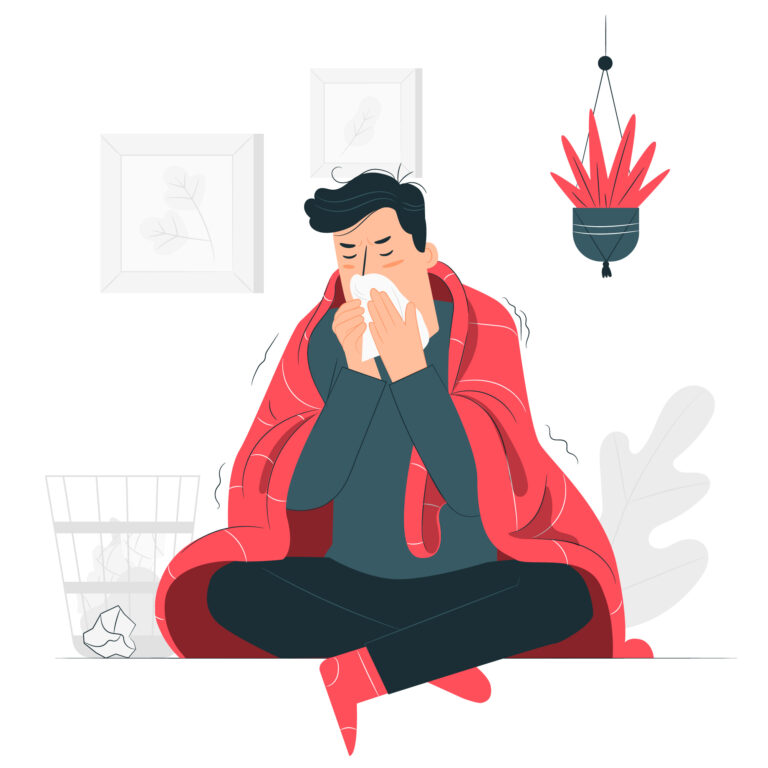What are Immune System Disorders?

These disorders are conditions that cause abnormal activity of the immune system. The immune system tends to become underactive or overactive in certain individuals causing complications with their health.
Low activity of it decreases the body’s natural ability to fight against viruses and bacteria, hence a person becomes more vulnerable to infections, while overactivity of the immune system causes one’s body to attack its own cells and tissues. These are called “autoimmune diseases“.
Generally, in the case of a healthy immune system, the body can tell the difference between foreign invaders (cells) and your own cells. But when it gets confused between the two, the body behaves abnormally and messes up the whole mechanism of what it usually does.
What causes the Immune System to Go Wrong?

There may be multiple reasons why the immune system doesn’t work the way it should:
1) Born with weak immunity: This happens when one or some parts of the body’s immune system are missing or don’t function properly. This is called primary immunodeficiency.
2) Disease that weakens your immunity: Diseases such as HIV/AIDS interfere with the body’s ability to fight infections. This is called acquired immunodeficiency.
3) Immune system which is too active: This may happen in cases of allergic reactions.
4) Immune system which is overactive all the time: This leads to autoimmune diseases.
Overactive immune system:
Born with certain genetic traits can influence the immune system to react to some substances in the environment that are generally harmless. These substances are known as allergens.
A person having an allergic reaction is the most common symptom of an overactive immune system. Allergens can be dust, pollen, food, mold, etc.
Some conditions caused by it are:
1) Allergic Rhinitis: Sneezing, runny nose, swelling of nasal passages, and headaches are the symptoms that one experiences when he/she comes into contact with any of the allergens (indoors such as dust and outdoors like pollens or molds)
2) Asthma: When allergens such as dust, pollen, or smoke enter your lungs, they trigger to cause cough or breathing problems. It happens mostly in cities due to air pollution.
3) Eczema: An itchy inflammation or rash on the skin caused by a certain allergen or irritant.
Autoimmune diseases

The cause of autoimmune diseases is not determined yet, but medical research says that it’s probably a combination of one’s genes and the environment that triggers them. A “western diet” is also suspected as a factor in developing this kind of disease.
So, the bottom line is that there are several factors involved – Genetics, diet, infections, and exposure to various chemicals.
Some of the common autoimmune diseases are:
Generally, there are more than 80 different autoimmune diseases. Below mentioned are some of the common ones:
1) Type 1 diabetes: The immune system attacks the pancreas organ, thereby, destroying insulin-producing cells. Insulin helps to regulate blood sugar levels. High blood sugar can damage the blood vessels and organs like the heart, kidneys, and nerves.
2) Rheumatoid arthritis (RA): A person’s own immune system attacks the ligaments and joints. This causes soreness, redness, stiffness, agonizing physical pain, and stress. Unlike osteoarthritis which affects people who are older, RA can start during their prime age (20s or 30s).
3) Pernicious anemia: In this condition, there is a deficiency of a certain protein made by stomach lining cells. It is needed for the small intestine to absorb vitamin B-12 from food. When one doesn’t have enough of this vitamin in his body, he/she will develop anemia and the production of red blood cells will be heavily altered.
4) Inflammatory bowel disease: IBD is a term that is used to describe the problems or conditions associated with chronic inflammation in the lining of the intestinal wall or digestive tract. Usually, they are divided into two parts of the GI tract:
- Crohn’s disease: It involves different parts of the digestive tract in different people (from mouth to anus) and causes inflammation which can lead to abdominal pain, diarrhea, and malnutrition.
- Ulcerative colitis: This causes inflammation and sores in the internal lining of the large intestine (colon) and rectum. Symptoms may develop over time.
5) Psoriasis: This condition involves skin cells that tend to build up and form red, itchy, and dry patches. Basically, the skin cells multiply rapidly and the extra ones can lead to the development of swelling, stiffness, and pain in the joints.
Click here to know more about autoimmune diseases and their types.
Yoga can improve one’s immune system and overall well-being. Check out this link to know more.
